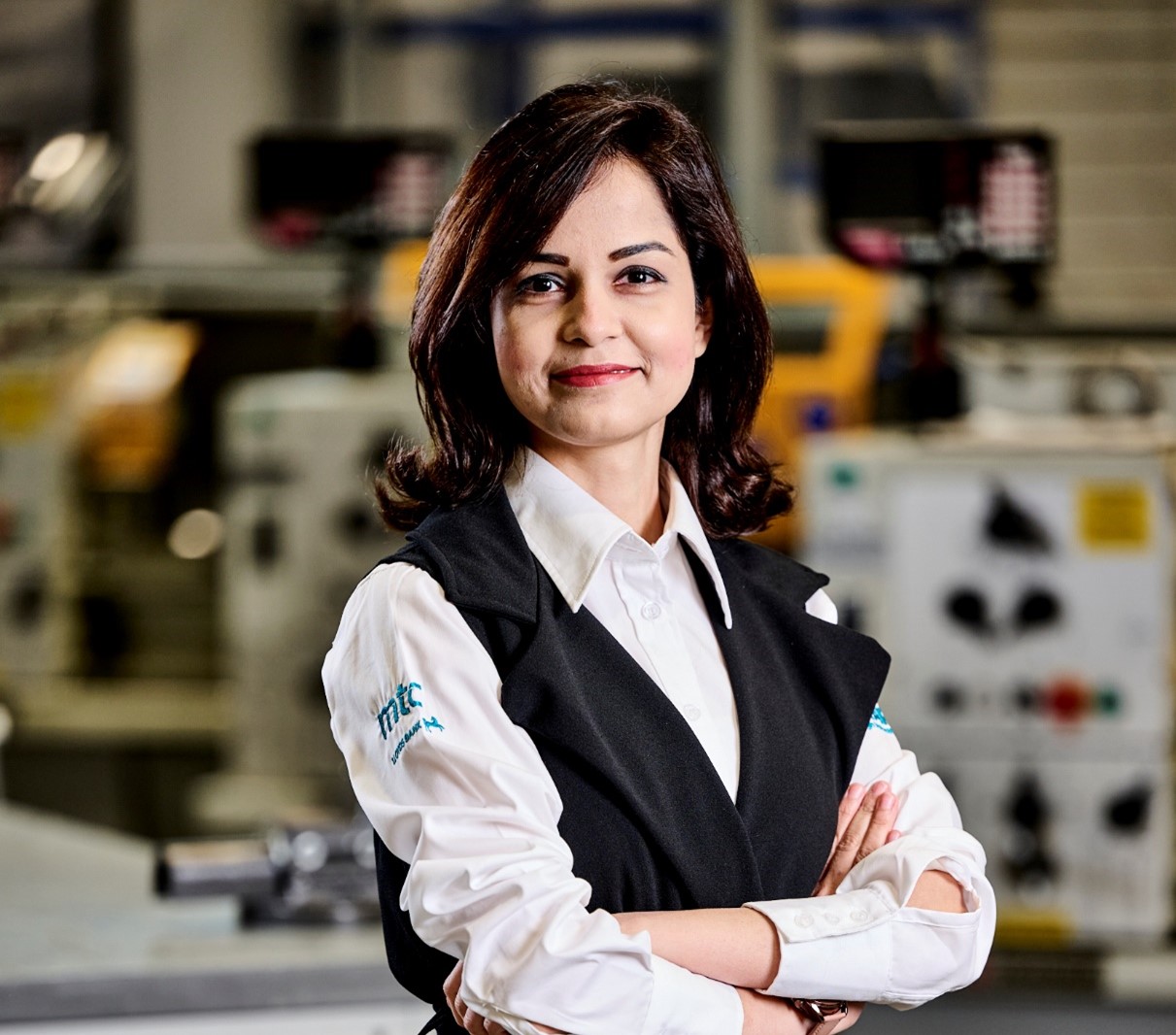
Ayesha is one of our most highly academically qualified trainers and is currently pursuing a PhD alongside her training role. Having followed in her father’s footsteps, she’s passionate about teaching and she is particularly enthusiastic about promoting the profession of engineering to the next generation.
We caught up with her just six months into her new role at MTC Training as she told us why she feels she was born to be an educator, what MTC Training does differently, and why it’s important not be tempted to skip the theory before you head onto practical work.
What was your prior industrial experience before you joined MTC Training?
My background is primarily in academia and research. I completed my BSc and MSc in Electrical Engineering, focusing on electronics and communication, before becoming an Electrical Engineering Lecturer at university where I taught for 9 years, followed by a further two years’ experience in teaching and management positions in Further Education.
I’m passionate about both engineering and teaching. I love sharing my knowledge with others, which has led to me be very active in the engineering community. I specialise in Communication Systems and my Ph.D. research is on communication channel aspects and antenna design of drones. I’ve also collaborated with several organisations, journals and conferences as a research expert and peer reviewer. I’m a member of the Pakistan Engineering Council (PEC), a senior member of the Institute of Electrical and Electronics Engineers (IEEE) (which is a huge honour!), featured in many media interviews, and have authored and published research papers and a book chapter as well. I’m also a proud ambassador of women in science and engineering, and was recently featured as one of We Are Tech Women’s 'Inspirational Women in Tech’.
Alongside my training role, I’m currently pursuing my PhD in Electrical and Electronics Engineering. I’m particularly interested in robotics and communication – my research in PhD. is related to communication aspects of drones, which has a broad scope in future. The advancement of technology, for example the upcoming implementation of 6G, will help enormously in establishing this technology more and using it to its full potential and diverse applications.
What would you say are your career highlights?
Becoming a senior member of IEEE was a great honour because it’s a status that’s awarded to only a small proportion of the members. It requires you to be highly experienced and active in academia and research in your field, so it was wonderful for my contributions to be recognised. I’ve felt the same whenever my research work has been published.
My proudest moment was receiving a Bronze Medal in Intermediate Exams (the equivalent to A Levels). They are taken by around 100,000 students on the district level and I was among the top three students with a score of 89.81%.
Why did you decide to become a trainer?
Teaching is my passion, and in fact, it’s in my blood. My father was a professor with a Ph.D. in education, so I feel like I’ve learned and trained from his experience since my childhood – it’s like I was born to be an educator. When I was a child, I used to sit at the back in his classroom so I could attend his lectures, and as I grew up and pursued my own career, I ended up teaching at the same university as him, so we were colleagues as well. I’ve inherited my work ethics from him too, and we both uphold similar values in the classroom.
Being a trainer at the MTC not only satisfies my passion for education and teaching, but also offers me an opportunity to work with industry much more closely. It’s a positive and constructive team and environment, and I’m thrilled to be a part of it and to be able to make an impact from MTC’s platform.
What do you enjoy most about your training role?
The connection and bond with the apprentices. When I get into the classroom, I feel very enthusiastic about whatever I’m teaching, and I really enjoy transferring my knowledge to my learners. I love getting great feedback from the apprentices too, it encourages and motivates me even more.
How is the AMTC different from other training centres?
I’ve been really impressed with how MTC Training treats people – it’s a much more supportive and positive place to be than my previous experiences. Delivery is good and quality is high across the board, and everyone is keen to support each other. The whole centre is working towards the same goal – we’re all committed to delivering the highest quality of training for the benefit of our learners and employers, as well as our colleagues.
What makes a good apprentice? What qualities do apprentices need to make the most of their opportunities here?
You need to gain a combination of technical skill and knowledge, so that you understand the theoretical concept as well as its application. I also think the best apprentices have a strong work ethic.
What advice would you give to prospective apprentices?
Embrace both the theoretical concept and the practical application – it’s so tempting to skip the theory and get straight into the workshop, but knowing how something works or why something is happening is really important.
Maths and physics are essential in engineering, and feature particularly strongly in electronics, mechanical engineering and mechatronics, so I’d also recommend practising and strengthening your maths as much as possible.
What advice would you give to any prospective trainers?
My advice to prospective trainers is continue working towards your own personal and professional development and enhance your knowledge and skills, that way, you’ll be most effective in teaching others! Once you’re a trainer, it’s important to hold yourself to a high standard when planning, delivering, and assessing in order to provide the best possible learning and training experience to the learners.